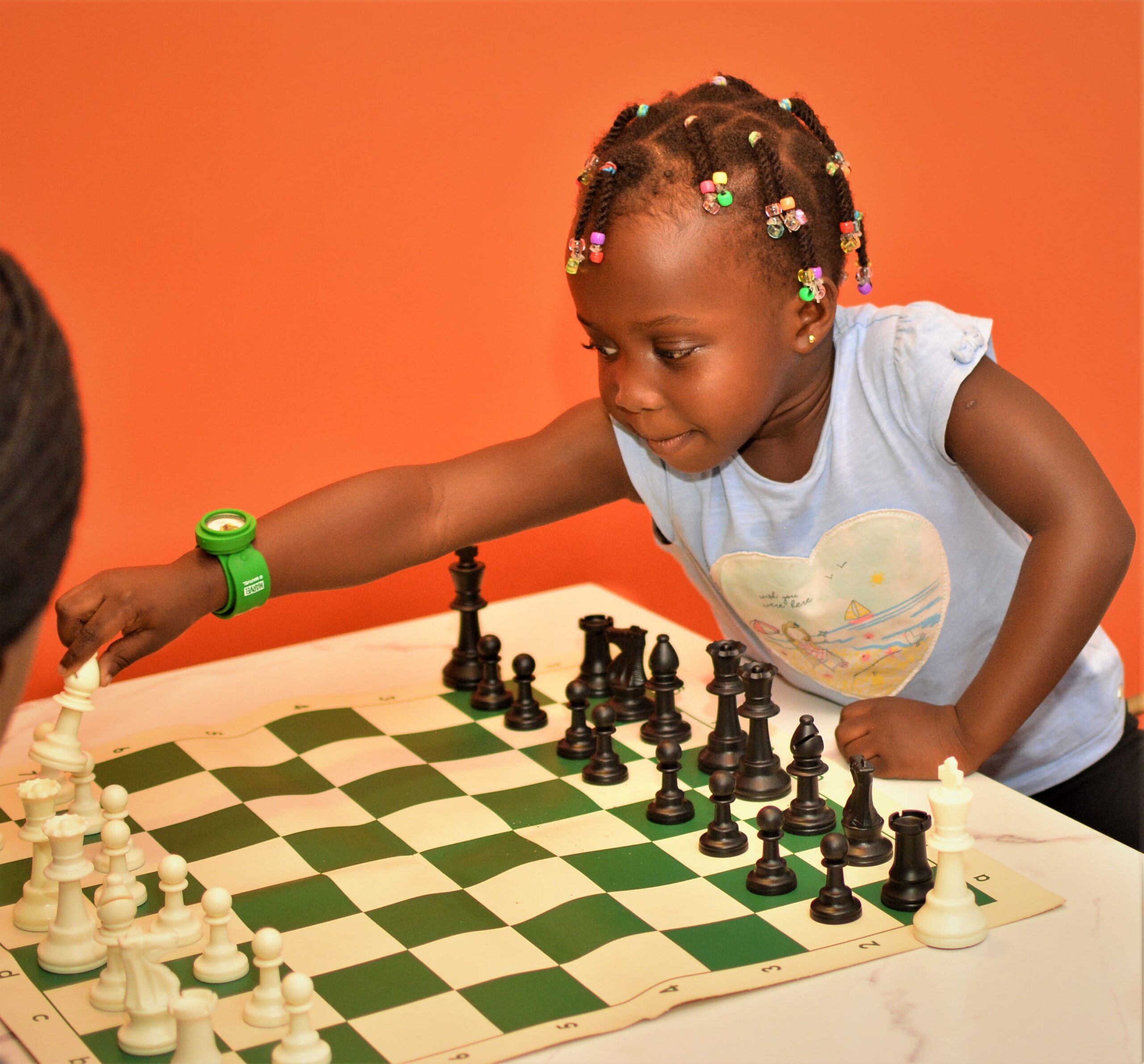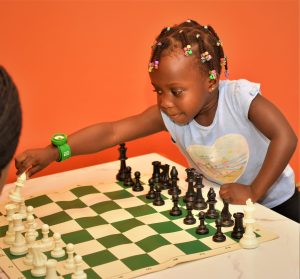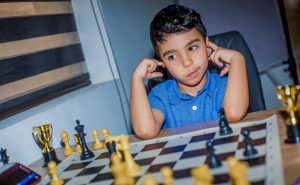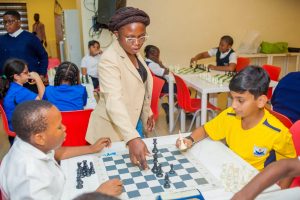The educational benefits of chess are abundant and well-documented. Extensive studies have been conducted on this topic, resulting in a wealth of literature that unequivocally demonstrates the positive impact of chess on academic improvement for both children and adults. Today, I want to assist you in highlighting just a few of these remarkable benefits.
“Playing Chess helps students develop thinking and analyzing skills, concentration greater self-control and self-confidence….” William Jefferson Clinton
“Chess teaches that decision must be an outcome of serious thought process” Jacob Zuma
Focus – Children are taught the benefits of observing carefully and concentrating. If they don’t watch what is happening, they can’t respond to it, no matter how smart they are.
Visualize – Children are prompted to imagine a sequence of actions before it happens. We actually strengthen the ability to visualize by training them to shift the pieces in their mind, first one, then several moves ahead.
” Chess teaches discipline” Jacob Zuma
Chess is definitely an excellent memory exerciser, the effects of which are transferable to other subjects where memory is necessary. John Artise – Chess and Education
Pupils who learn chess enjoy a significant increase in their reading skills. Dr. Margulies – The Effect of Chess on Reading Scores – NY
Learning Chess has a positive influence on the development of both numerical and verbal aptitudes. Dr. Albert Frank – Chess and Aptitudes – Zaire 1974
Think Ahead – Children are taught to think first, then act. We teach them to ask themselves “If I do this, what might happen then, and how can I respond?” Over time, chess helps develop patience and thoughtfulness.
Weigh Options – Children are taught that they don’t have to do the first thing that pops into their mind. They learn to identify alternatives and consider the pros and cons of various actions.
Analyze Concretely – Children learn to evaluate the results of specific actions and sequences. Does this sequence help me or hurt me? Decisions are better when guided by logic, rather than impulse.
Think Abstractly – Children are taught to step back periodically from details and consider the bigger picture. They also learn to take patterns used in one context and apply them to different, but related situations.
Plan – Children are taught to develop longer range goals and take steps toward bringing them about. They are also taught of the need to reevaluate their plans as new developments change the situation.
Juggle Multiple Considerations Simultaneously -Children are encouraged not to become overly absorbed in any one consideration, but to try to weigh various factors all at once.
So, when your child excitedly grabs the chess set at home, eagerly inviting you to join them for a game, seize the moment without hesitation. While they may perceive it as a simple source of enjoyment, it is important to recognize that playing chess with your child holds great significance. In the eyes of children, this playful interaction carries immense therapeutic value, fostering their growth and well-being in a unique and fulfilling way. So, embrace the opportunity to bond over chess and watch as their joy intertwines with the remarkable benefits it brings.




